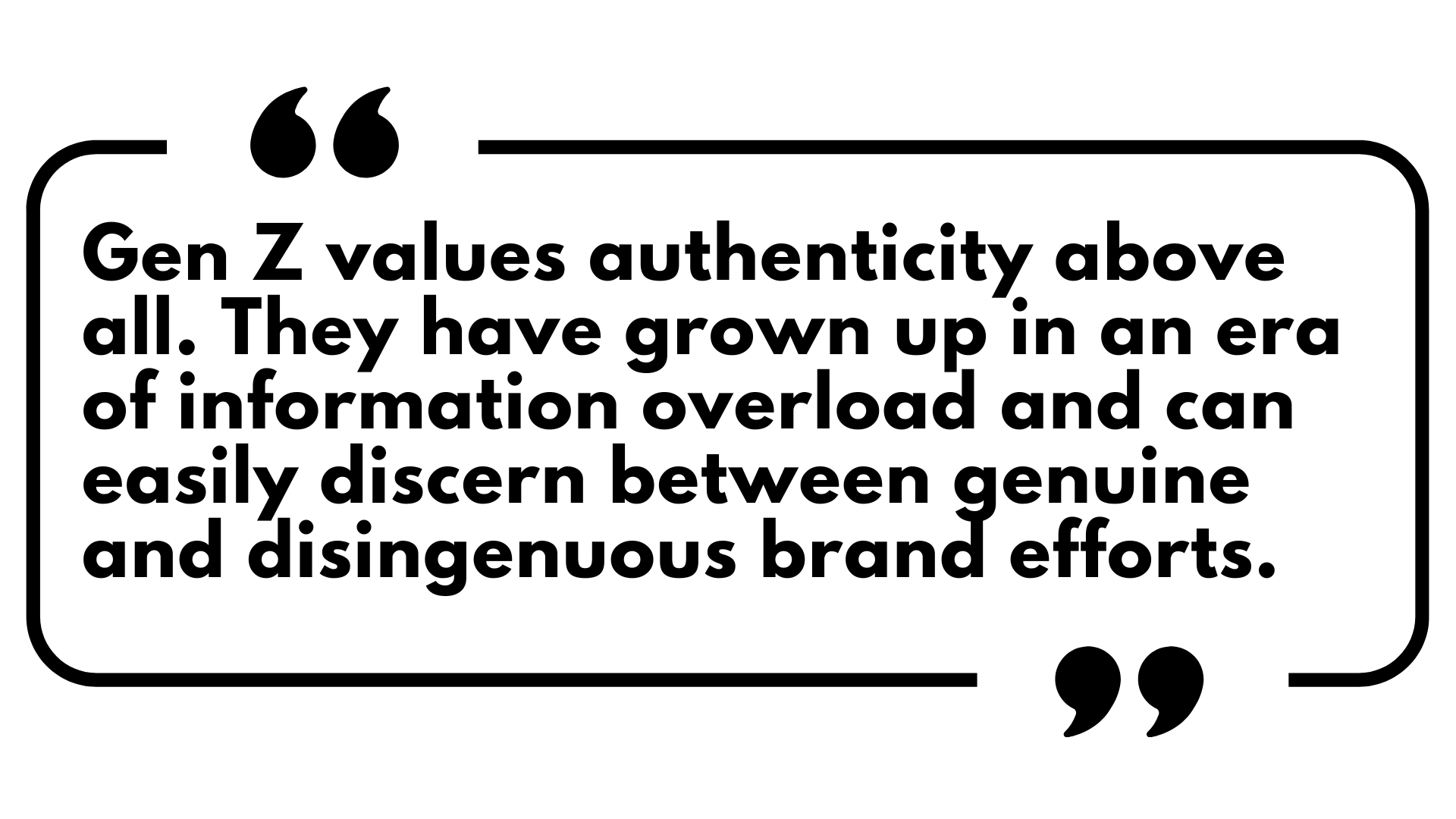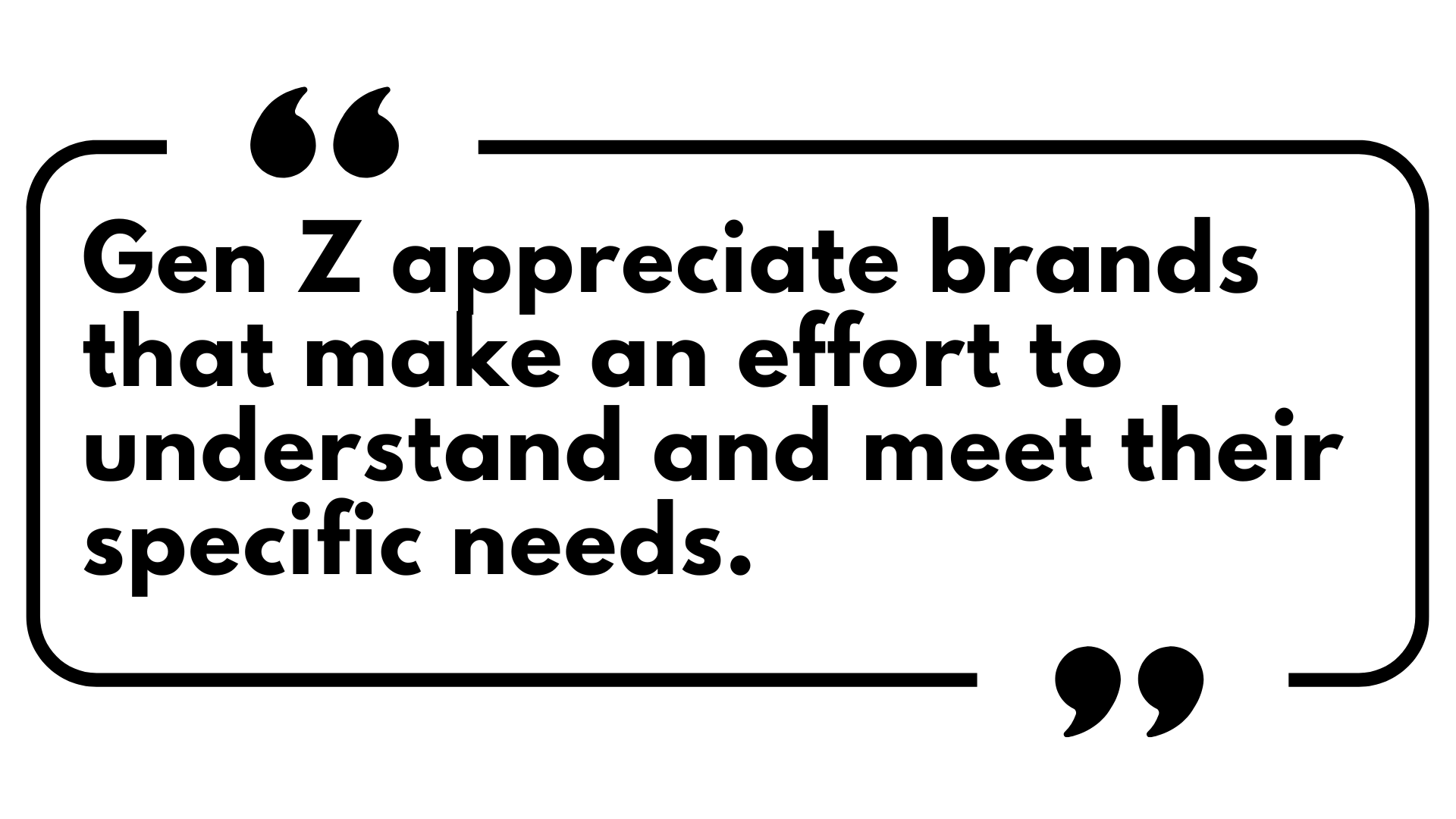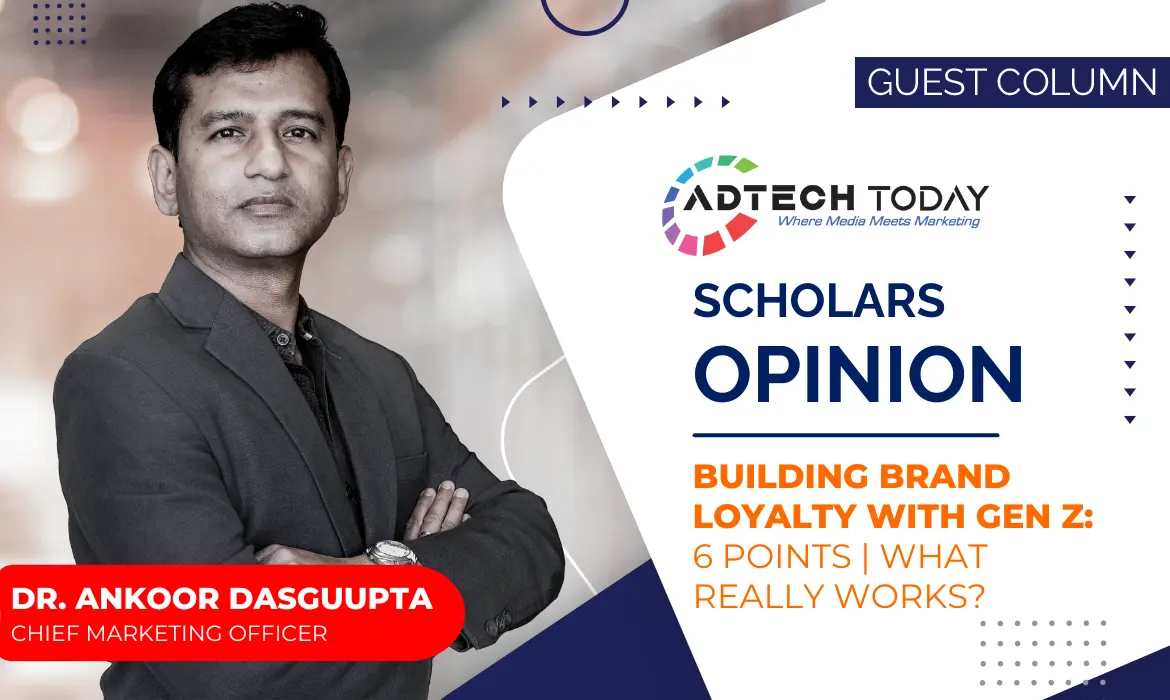Building Brand Loyalty with Gen Z: 6 Points | What Really Works?
“Brands that connect with Gen Z through authenticity and shared values are not just gaining customers; they are building communities of loyal advocates.” – Emma, Marketing Executive
Let’s take this conversation (which is from my personal experience, but I will just change the names). In a café in Mumbai, Jyoti a marketing executive, sat across from her teenage niece, Mia. As they sipped their lattes, couldn’t help but notice the plethora of brand logos adorning Mia’s attire and gadgets. Curious about her brand choices, Emma asked, “Mia, why do you choose these brands over others?” Mia’s answer was both insightful and a wake-up call for Jyoti: “I feel like some of these brands understand me, and they’re genuine. Plus, they’re active on the platforms I use and stand for causes I care about.”
This conversation underscores a crucial lesson for brands: connecting with Gen Z, the generation born between 1997 and 2012, requires more than traditional marketing tactics. With an estimated global spending power of over $143 billion and influencing $600 billion in family spending, Gen Z’s impact is undeniable. To build brand loyalty with this generation, CMOs must touch the chords to resonate and according to me, rather than focussing on being innovative all time, just focus on simple questions which are deeper than data. Those are called values and emotions. It’s like a doing extensive research done by a say a Ketchup brand while what it may need at first is the emotion associated with Ketchup.

1. Authenticity is Non-Negotiable
Gen Z values authenticity above all. They have grown up in an era of information overload and can easily discern between genuine and disingenuous brand efforts. According to a survey by Sprout Social, 64% of Gen Z consumers say they would be more likely to trust a brand if it posts authentic content.
Thoughts-
- Transparent Communication: Share your brand’s story, mission, and values openly. Highlight behind-the-scenes content that showcases your company culture and processes.
- User-Generated Content: Encourage your customers to share their experiences with your products. This not only builds trust but also fosters a sense of community.
- Example: Global: Clothing brand Aerie’s #AerieREAL campaign, which promotes body positivity and features unretouched photos of real customers, has been highly successful in creating an authentic connection with Gen Z.
- India: The cosmetic brand Plum is gaining traction in India with its #EmbraceYourReal campaign, promoting authenticity and self-love, which resonates well with Indian Gen Z.
2. Embrace Social and Environmental Responsibility (from your heart and not just a tick mark in your AOP)
Gen Z is deeply concerned about social and environmental issues. According to a study by BBMG and Globes can, 73% of Gen Z are willing to pay more for sustainable products. This generation expects brands to take a stand on important issues and contribute to positive change.
Thoughts-
- Sustainable Practices: Implement eco-friendly practices in your supply chain and product offerings. Communicate these efforts transparently to your audience.
- Social Causes: Align your brand with causes that resonate with Gen Z. Participate in or support movements that reflect your brand’s values.
- Example: Global: Patagonia, known for its commitment to environmental sustainability, donates 1% of its sales to environmental causes. This dedication has earned the brand a loyal following among environmentally conscious Gen Z consumers.
- India: The brand Fabindia promotes sustainable and ethical fashion by working closely with local artisans, which resonates deeply with Indian Gen Z consumers who value sustainability. (Well, the flip side is a lot of greenwashing that goes on globally is what I observe).
3. Influencer Marketing (can you do without this today?)
Gen Z trusts influencers more than traditional celebrities. They follow influencers who share their interests and values, and they look to these influencers for product recommendations. According to a report by Morning Consult, 72% of Gen Z follow influencers on social media, and 52% trust influencers they follow for advice on what to buy.
Thoughts-
- Micro-Influencers: Collaborate with micro-influencers who have a strong connection with their followers and high engagement rates. Their recommendations often feel more personal and trustworthy.
- Authentic Partnerships: Ensure that influencer partnerships align with your brand values and come across as genuine rather than purely transactional.
- Example: Global: Gymshark, a fitness apparel brand, effectively uses micro-influencers and fitness enthusiasts to promote its products. These influencers share authentic content that resonates with their followers, driving brand loyalty and sales.
- India: Mamaearth, a popular personal care brand, collaborates with Indian micro-influencers and parenting bloggers to promote its natural and toxin-free products, building trust and loyalty among young parents.

4. Engage on Their Preferred Platforms
Gen Z spends a significant amount of time on social media platforms like Instagram, TikTok, and Snapchat. These platforms are not just for entertainment but are also where they discover and engage with brands. According to GlobalWebIndex, Gen Z spends an average of 3 hours per day on social media.
Thoughts –
- Platform-Specific Content: Create content tailored to the unique features and audience of each platform. For instance, use Instagram Stories for behind-the-scenes content, TikTok for short, engaging videos, and Snapchat for exclusive promotions.
- Interactive Content: Utilize features like polls, quizzes, and live streams to engage with your audience and foster a sense of community.
- Example: Global: Chipotle’s use of TikTok to engage with Gen Z through challenges, behind-the-scenes content, and interactive posts has significantly boosted its brand visibility and loyalty among younger consumers.
- India: Zomato, a food delivery and restaurant discovery platform, uses Instagram and Twitter to share witty and engaging content, keeping the audience entertained and engaged, which resonates well with Indian Gen Z.
5. Personalization and Experience
Gen Z expects personalized experiences that cater to their individual preferences. They appreciate brands that make an effort to understand and meet their specific needs. According to a report by IBM, 59% of Gen Z say that personalized experiences based on their past interactions with a brand are important.
Thoughts-
- Data-Driven Personalization: Utilize data analytics to understand your customers’ preferences and behaviour. Offer personalized recommendations and tailored content.
- Exceptional Customer Experience: Focus on creating seamless and enjoyable customer experiences across all touchpoints, from online shopping to customer service.
- Example: Global: Spotify’s personalized playlists, such as “Discover Weekly” and “Wrapped,” have been instrumental in building a loyal user base. These features provide a customized experience that resonates with Gen Z’s desire for personalization.
- India: Swiggy, an Indian food delivery platform, uses data analytics to offer personalized restaurant recommendations and exclusive deals, enhancing the user experience and fostering loyalty.
6. Community Building
In my observation, Gen Z values community and seeks brands that foster a sense of belonging. Building a strong brand community can enhance loyalty and encourage advocacy. Gen Z also loves interactive and gamified experiences that make engagement fun and rewarding.
Thoughts-
- Create Forums: Develop online forums or social media groups where customers can connect and share their experiences.
- Host Events: Organize virtual or in-person events to engage with your community and build stronger connections.
- Example: Global: Lululemon, an athletic apparel brand, hosts local community events and yoga classes, fostering a strong sense of community among its customers.
- India: Cult.fit, a health and fitness brand, creates a sense of community through group workout sessions and social media engagement, encouraging users to share their fitness journeys.
Sources
1. Gen Z’s Spending Power: According to a Business Insider estimate, Gen Z has around $360 billion in disposable income. This substantial spending power is partly due to their embrace of side gigs and hustle culture, with many having multiple income sources alongside full-time jobs ( EcoCart ).
2. Social Media Influence: Gen Z is highly active on social media, with 61% following brands they like. This demographic prefers engaging with brands on platforms such as Instagram, TikTok, and YouTube, indicating the importance of a robust social media strategy for businesses aiming to capture this audience ( EcoCart ).
3. Sustainability and Eco-Friendliness: Sustainability is a critical factor for Gen Z when making purchasing decisions. A survey by IBM found that 75% of Gen Z respondents stated that sustainability was important to them. Moreover, 64% are willing to pay more for sustainable products, underscoring their commitment to environmentally friendly practices (Total Retail).
4. Authenticity and Transparency: Gen Z values authenticity and transparency in brands. A SurveyMonkey study revealed that 32% of Gen Z cite authenticity as a driving factor in their purchasing decisions. They prefer brands that are genuine, transparent, and honest in their communications and practices ( EcoCart ).
This article is written by Ankoor Dasguupta, Chief Marketing Officer.
Author Profile

Dr. Ankoor Dasguupta
Mentor | Advisor | Digital Marketing | Advertising | Brand Strategy | Print | Digital | Mobile | Media Plannig & Buying
Dr. Ankoor Dasguupta is a thought leader, marketer and executive Coach, who has worked across functions in marketing and advertising with a pedigree of 24 years and ongoing exciting journey, with a rare combination experience across the spectrum of media - print, digital, mobile, event productions & successful pilot projects. He is on multiple national and International Advisory Boards, an extensive speaker at top Business Schools & academia. Extending beyond academia; Dr. Dasguupta has been honoured with the "CIRCLE OF EXCELLENCE 2024" award by Passion Vista with magazine Cover Story also and recognized as the "MAN OF EXCELLENCE, 2024" by the prestigious Indian Achievers' Award which is a national level award. Most recently Dr. Dasguupta has been selected and felicitated with the national level award -Dr. A.P.J Abdul Kalam Inspiration Award 2024 in the category Youth Icon of the Year.


